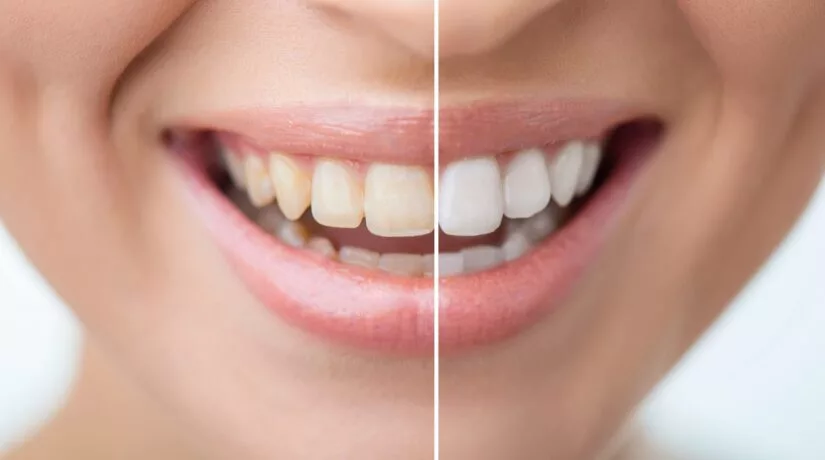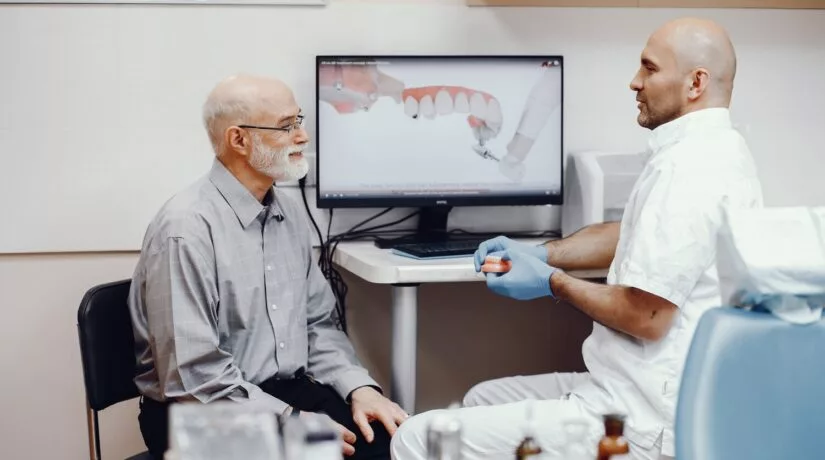![]() Bridle Trails
Family Dentistry - (425) 881-9333
Bridle Trails
Family Dentistry - (425) 881-9333
![]() Spring District
Family Dentistry - (425) 454-4298
Spring District
Family Dentistry - (425) 454-4298
![]() Bridle Trails
Family Dentistry - (425) 881-9333
Bridle Trails
Family Dentistry - (425) 881-9333
![]() Spring District
Family Dentistry - (425) 454-4298
Spring District
Family Dentistry - (425) 454-4298

Filling The Gaps In Patients’ Teeth
A flipper tooth is a removable, temporary tooth replacement for patients who have lost a tooth due to disease or injury while they wait for their permanent implant. Flippers are very easy to pop in and out, which is particularly useful for keeping them clean. Another benefit to a dental flipper is that you can eat comfortably with it in!
What Is A Flipper?
A flipper tooth is a removable, temporary tooth replacement for patients who have lost a tooth due to disease or injury while they wait for their permanent implant. Flippers are very easy to pop in and out, which is particularly useful for keeping them clean. Another benefit to a dental flipper is that you can eat comfortably with it in!
Common Types Of Dental Flippers
There are four basic types of removable flippers.
How Do I Know If I’m A Candidate For A Flipper?
If you’re looking for a way to fill in those gaps while you wait for a dental implant.

Conventional Versus Immediate Full Dentures
There are two types of full dentures. Conventional full dentures are when all of the teeth are removed and the tissue is given time to heal. Once healed, the full set of dentures is placed. The time it takes for the tissue to heal could take anywhere from a few weeks to a few months. During this time, the patient will go without teeth.
Immediate full dentures are placed in the same dental visit. Prior to pulling the remaining teeth, our doctors will take measurements of the patient’s mouth. When the patient returns for the procedure and directly after the patient’s remaining teeth are removed, the dentures are placed. The patient’s jawbone and mouth may shift in the healing process, so our doctors would recommend a followup visit to check the placement of the dentures. Over time, the dentures will need to be tightened as the patient’s mouth heals.
There are also partial dentures. These are similar to a bridge but are removable.
How Long Will It Take To Adjust To Dentures?
Dentures will take time to get used to. The flesh-colored base of the dentures is placed over the tops of your gums. Some patients feel that they get in the way or are a bit bulky. The dentures may feel loose at times. Because of this, they may affect the way you talk or eat. Over time, they become less of a nuisance and you’ll feel comfortable with them.
How Can We Help
Dentures are a great replacement for missing teeth. They can be removed and put back in at any time. We offer affordable dentures while using the very best material on the market. The reason that our doctors may recommend dentures is that in some situations a patient may not have enough healthy teeth left for other procedures. In such cases, the remaining teeth are removed and a full set of dentures is provided.

What Are Hybrid Dentures And Fixed-Detachable Prostheses?
Hybrid dentures, or fixed-detachable prostheses, are dentures that attach to four or more implants in the jaw. They do not rub against the gums as removable dentures can, and they work much more like natural teeth, opening up a wider range of food possibilities to the patient.
Taking Care Of Your Fixed-Detachable Prosthesis
Because hybrid dentures are not removable, the cleaning process is different than with traditional dentures, and it’s also a little different from cleaning natural teeth. In order to maintain healthy gums and jaw bone, it is critical to clean under and around the dentures as well as cleaning the actual teeth. We also recommend that you come in to the practice on a regular basis so that we can remove them for professional cleaning.
Am I A Candidate For A Hybrid Prosthesis?
If you are tired of wearing traditional dentures and have always wanted fixed teeth, you could be a good candidate for a set of hybrid fixed-detachable dentures.

What Are Implant-Retained Dentures?
Unlike traditional dentures, which rely on suction and soft tissue support to stay in place and are removable, implant-retained dentures combine the advantages of dentures with those of dental implants. You get to enjoy the stability, esthetics, and longevity of implants with the affordability of dentures, as well as a much shorter recovery period than a full mouth reconstruction with conventional individual implants would require.
How Do Implant-Retained Dentures Work?
Where conventional dental implants are one per tooth, implant-retained dentures are held in place by only four implants per arch to give them permanent stability. That’s about 24 fewer implants! Because these dentures are supported by the bone, they don’t put pressure on the gums. This makes chewing much easier and helps reduce bone loss in the jaw. They are more common for the lower jaw, but can also be made for the upper jaw.
Who Do We Recommend Them For?
Our doctors may recommend implant-retained dentures for patients with no natural teeth remaining if they still have enough healthy jaw bone to support the implants, particularly when full mouth reconstruction with individual implants is outside the patient’s price range.

What Are Implant-Retained Partials?
Unlike traditional removable partial dentures, which fit over the gums and clasp onto neighboring natural teeth to stay in place, implant-retained partials combine the advantages of dentures with those of individual implants. They are more stable and long-lasting than removable partial dentures, but they are far more affordable than replacing each individual missing tooth with implants.
How Do Implant-Retained Partials Work?
Where conventional dental implants are one per tooth, implant-retained partials may only require as few as two implants to provide the needed stability. Once the implants are in place, the implant-retained partial will easily snap onto them, where they will match your remaining natural teeth. Because these partials are supported by the bone, they don’t put pressure on the gums. This makes chewing much easier and helps reduce bone loss in the jaw.
Who Do We Recommend Them For?
Our doctors may recommend implant-retained dentures for patients with some remaining natural teeth if they still have enough healthy jaw bone to support the implants, particularly when individual implants for each missing tooth are outside the patient’s price range.